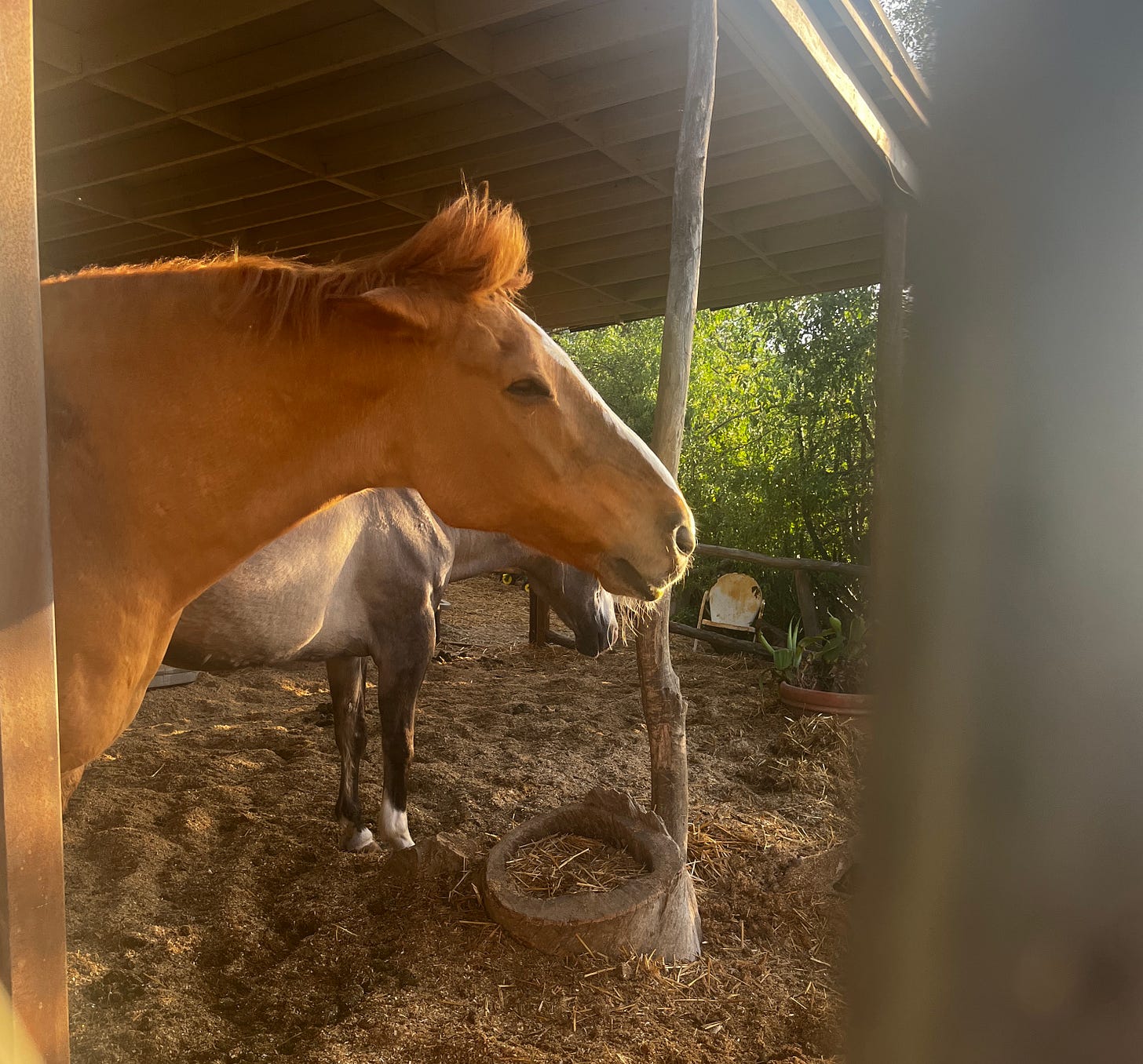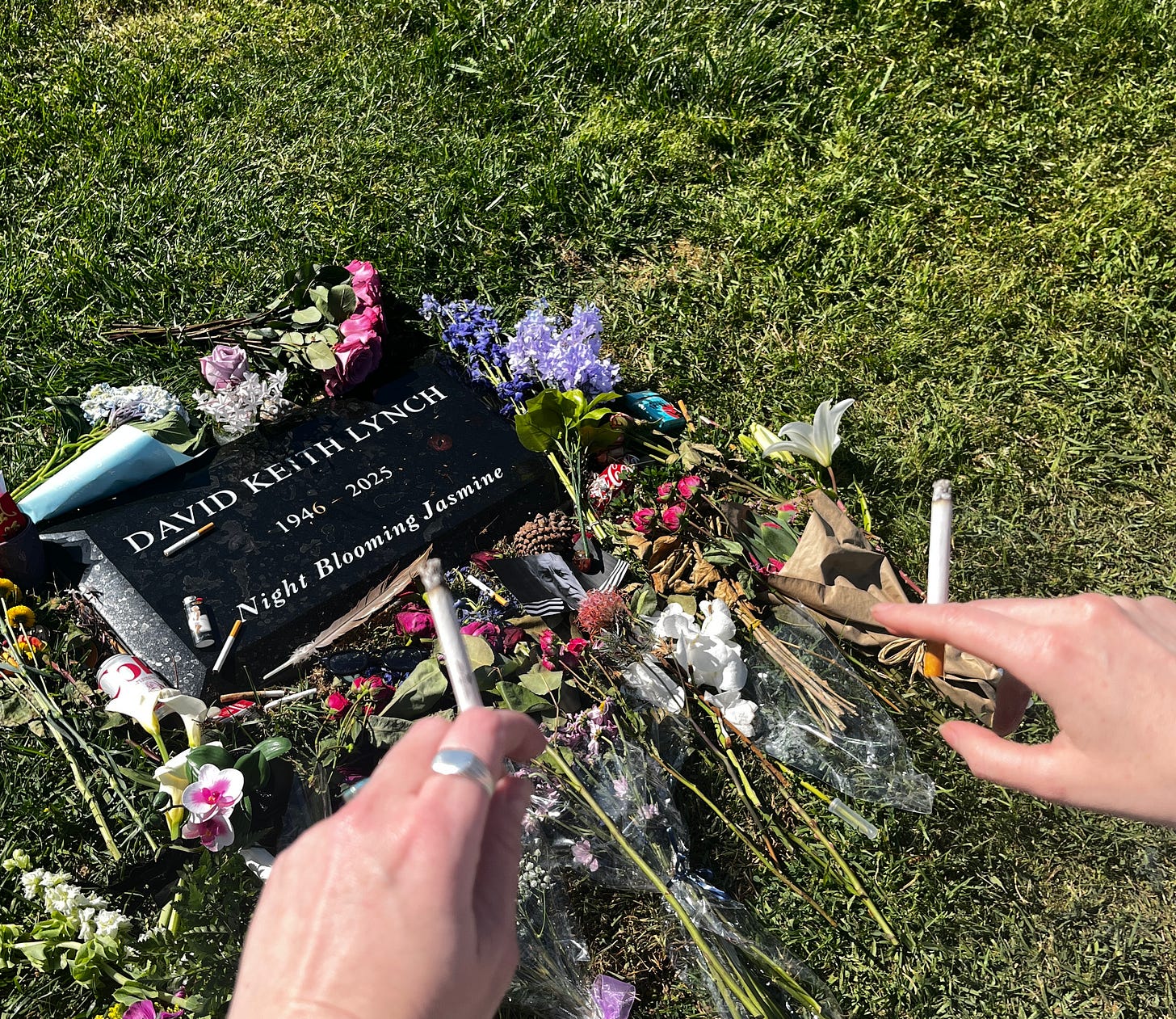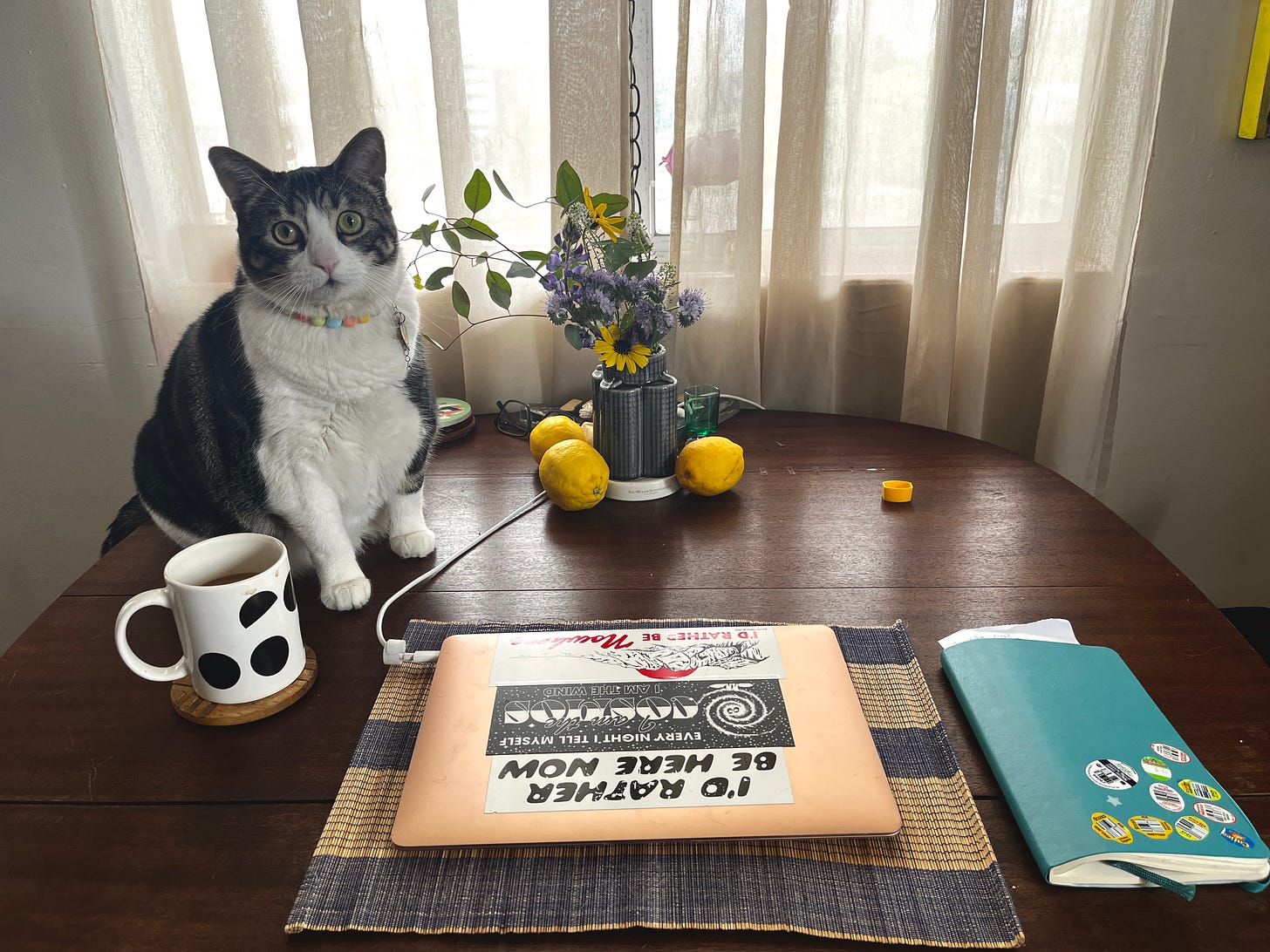,,I deleted Inst*gram off my phone; addictive behavior crossed with ADHD has cost me hours off my life, mindlessly scrolling through content I may or may not care about, leading to despair, boredom, and endless late night spirals. I crave better propaganda—even positive posts are framed with snark for fear of being “cringe.” I gain nothing from it and I’ve done it for so many years, grabbing my phone before bed or in front of a movie has eroded my focus through muscle memory. With how much actually devastating news happening around the world and in this administration, it was time for me to reorient myself to this chaotic reality.
Using a DBT tactic called Opposite Action, I first made a list of habits that have been making me really unhappy, then I made a corresponding column for the opposite action. My list looks like this:
Spiraling about finances — keeping a gratitude list, saying out loud the things I appreciate about my life, most wealth has nothing to do with money!
Staying in bed — go outside! Even if it’s just on my porch
Being hard on myself for things outside of my control — accepting myself and counting my accomplishments/things that I like about myself
Ordering delivery (one of my most wasteful habits) — cook! at! home!
Isolating myself — call or text a friend and ask them how they’re doing
Comparing myself to others — delete social media and stay in my lane
I’m emerging from a two year depressive episode I didn’t really see I was in until I came out of it. Between having long covid without a diagnosis, indulging in bad eating habits, feeling uncomfortable in my body, going full time freelance, and processing small, cumulative traumas from the early pandemic/post-grad school, I hadn’t taken good enough care of myself and didn’t really know how to afford it!
So much is out of our control at the moment. My therapist always tells me to find the joy in making little decisions, what I’ve been framing as rituals: putting my clothes back on their hangers, making my bed, writing my morning pages, putting my meals on little antique plates inspired by Ray Eames, sitting in the sun with the cats for 30 minutes while I have coffee, going on an evening walk through Elysian Park, brushing the cats after dinner, reading for just twenty minutes while I brush my teeth, watering my plants on Sundays, etc. These habits and rituals are ones I can practice for the coming decades and the sooner I make these changes, the sooner I can begin to feel better in very troubling times.
So please clap for my baby steps and share with me yours. I deleted my entire twitter timeline, I’ve been going on long park walks 3x a week and just letting my eyes roll around and enjoy the gorgeous world around me. Who knows maybe I’ll even start reading books again! We have too much life to live to keep our necks buried in screens!
Night Blooming Jasmine
David Lynch’s ashes have been interred at Hollywood Forever Cemetery and his epitaph was revealed this week by his daughter: Night Blooming Jasmine. It’s the season for jasmine all across California and catching a scent of it at night is heavenly, life altering, transcendent(al). Everything I’ve learned about Lynch since his passing has nearly brought me to tears; I guess you don’t know who your mentors are until they’re gone. I had no idea I cared this much about Lynch. My friend and I visited on Wednesday where we placed a rose and jasmine—both from our apartment yards—and smoked a eulogic cigarette.
Two short films about Palestine: Manal Issa (2024) and Man Number 4 (2024)
I love my local art cinema. I, by way of a haunted, often burning covered pedestrian bridge that stretches over the 110 freeway, am able to traipse into New Chinatown within five minutes from my apartment under Dodgers Stadium. Now Instant Image Hall opened about a year ago. It’s like a mini Metrograph but with an entirely green interior and a basement bar. The single theater spot is located on Chung King Road, one of the cutest alleyways in Chinatown replete with hanging red lanterns so walking there is always a treat.
Last weekend was the Los Angeles Festival of Movies (LAFM) and I skipped all the fancy events and snagged a last minute press pass to a series of shorts hosted by Now Instant. Manal Issa (2024) by Elisabeth Subrin recreates an interview first conducted in 1983 with Maria Schneider who was traumatized on set when she was assaulted on film during the filming of Last Tango in Paris. Subrin asks Issa, who is a French-Lebanese actress living in Beirut, the same set of questions with much of her film crew working remotely from New York. During the set of questions you can hear in the background bombs dropped by Israel on the city, which intensified off screen once the interview was completed.
One of her responses (the questions are edited out so you only hear answers and an empty cafe scene presumably left by Issa) has been repeating in my head and restored my notion of choice to me. She said something to the effect of, I’d rather be poor than to have lost my soul. My soul is not more important than the people dying from the bombs. I’ve been struggling with the meaning behind boycotts lately, why people don’t see them as effective, how they transmit solidarity, and how they are the lowest common denominator when it comes to political action but people continuously choose their careers over ethical conviction. It’s alarming because we manage amorality on a scale, meaning because someone more wealthy or powerful is doing something worse than us, how can our actions be meaningful or calculated in a zero sum game? Well, I believe its just that type of thinking—zero sum—that strips us of our agency. I, like Issa, would rather have a little less money but keep my soul. Perhaps soulless people or even people taking the path of least resistance get ahead, but I would to be able to sleep at night, alone with my thoughts, free of distraction; that to me is priceless.
The second film, a video essay, Man Number 4 (2024) by Miranda Pennell and narrated by John Smith, examines closely an image posted to social media, taken in Gaza during the genocide in early 2023. Images emerged at that time of men stripped naked, men wearing all black, blindfolded, lined up like prisoners. The film starts with very close up pixels while the narration questions what’s happening in the image itself and what it means to be looking at it from the filmmaker’s apartment. The image itself is horrifying and yet this genocide continues to be enacted and paid for by U.S. tax dollars. The image in the film, which is finally revealed at the end is in a flattened neighborhood in the north of Gaza, where hundreds of Palestinian men are on their knees, outfitted in black, huddled together in an enormous pit presumably dug by them. Four men are stripped down in the foreground, facing an IOF soldier who is standing with a box. It is a scene of a war crime unfolding, a systematic extermination, but the fact that we may not know exactly what happened until months later is again, horrifying. What are we as a viewer supposed to do with this image? Do we feel powerless? Rage? Grief? Why is this allowed? This most visible and live streamed genocide in human history? When will the perpetrators be held accountable? When will there be justice? When we say “never again for anyone” what do we mean? ☼










👏🏽for your steps
I’ve also been walking the lake by my house for a month! Doubling the step count feels so rewarding